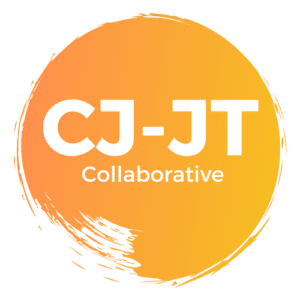Around 16% of us are disabled – representing over a billion people around the world – yet Disabled people remain the forgotten minority in climate policy and action. Fewer than 1 in 4 countries party to the Paris Agreement mention Disabled people in their national climate policies or adaptation programmes. The US, UK, Japan and China fail to mention Disabled people at all. This is despite the huge risks that the climate crisis presents for Disabled people as a result of their impairments and marginalization in society; they are up to four times more likely to die as a result of climate-related disasters such as wildfires, floods and earthquakes because of insufficient planning and infrastructure for safe evacuation. Even in our fight for climate justice, disability remains a significant blind spot, with progressive climate funders failing to take disability into account within their intersectional approaches to grantmaking.
This webinar delved into the real impacts of climate change on Disabled people around the world and assessed the current state of disability inclusion within climate policy and activism. We shed light on the exclusion of Disabled people’s voices in climate conversations, policies, and justice efforts and explore the consequences of climate solutions that fail to consider the unique needs of Disabled people, which compound existing problems. We demonstrated why Disabled people are a critical voice in the fight for climate justice, and how genuine inclusion leads to a better future for all. Finally, we examined the role that philanthropy can play in strengthening truly inclusive climate action.
We explored the topic through the social model of disability, recognizing that people are not disabled by their impairment, but rather as a result of their environment, societal barriers and discrimination. By using the term “Disabled people,” we emphasized that disability is a social identity and prioritize the rights and experiences of individuals within the disability community.
This event was co-organised by the Climate Justice-Just Transition Donor Collaborative (CJ-JT), Impatience Earth and Impatience Wellbeing. It is part of CJJT’s webinar series to explore how we might redesign philanthropy to shift power and resources to frontline communities to create climate solutions that also tackle systemic inequalities.
Link to Video Recording
Link to Webinar Summary
Speakers and Timestamps:
Introductions and Welcome
Yasmin Ahammad Co-managing Director, Impatience Earth (co-host) [00:00:38]
Climate Justice – Just Transition Donor Collaborative Presentation
Farhana Yamin Director & Co-ordinator, CJ-JT (co-host) [00:03:20]
Leia Booth Research Officer, CJ-JT (Climate Justice Map) [00:10:10]
Introduction of Panelists [00:14:44]
Dr Sarabajaya Kumar, Academic, disability rights activist, and social entrepreneur (Moderator) [00:15:05]
How does climate change impact disabled people?
Yolanda Muñoz, Coordinator of the Disability Rights and Climate Justice Board, Global Greengrants Fund [00:22:36]
Bringing it to life: stories from India
Abhishek Kumar, Fellow, National Centre for Promotion of Employment for Disabled People (NCPEDP) India [00:29:41]
What is the state of play on disability inclusion in climate policy, discourse and solutions? And how can a truly intersectional lens lead to a better future for all?
Dan White, Campaigns & Policy Officer, Disability Rights UK [00:35:59]
Nani Jansen Reventlow, Founder, Systemic Justice [00:43:44]
Plenary Discussion
What are key strategies for strengthening inclusion?
Abhishek Kumar [00:53:14]
Yolanda Muñoz [00:54:56]
What are your recommendations for philanthropy?
Abhishek Kumar [00:58:04]
Yolanda Muñoz [00:59:20]
Nani Jansen Reventlow [01:02:27]
Dan White [01:06:08]
Q&A [01:08:44]
Closing Remarks [01:29:27]

